Keynote Presentations by:
Martha Howell (Columbia University)
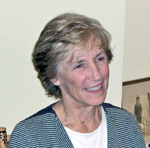 Martha Howell, Miriam Champion Professor of History at Columbia University, specializes in social, economic, legal, and women’s history in Northern Europe during the late medieval and early modern centuries, concentrating on the Burgundian Netherlands, northern France, and Germany. She received her bachelor’s degree from Georgetown University in Washington, D.C., and both her MA and PhD from Columbia. Before joining the Columbia faculty in 1989 she taught at Rutgers University in New Jersey, and from 1989 to 1995 she served as Director of the University’s Institute for Research on Women and Gender. Professor Howell’s publications include Commerce before Capitalism in Europe, 1300-1600 (Cambridge, 2010); From Reliable Sources (with Walter Prevenier, Cornell University Press, 2001; and the German edition in 2004); Uit goede bron (with Marc Boone and Walter Prevenier, 2000); The Marriage Exchange: Property, Social Place and Gender in Cities of the Low Countries, 1300-1550 (University of Chicago Press, 1998); and Women, Production, and Patriarchy in Late Medieval Cities (University of Chicago Press, 1986). She is presently working on the culture of credit in Northern Europe during the late medieval and early modern period. In 2007, Professor Howell was awarded a doctorate of humane letters, honoris causa, from the University of Ghent, Belgium.
Martha Howell, Miriam Champion Professor of History at Columbia University, specializes in social, economic, legal, and women’s history in Northern Europe during the late medieval and early modern centuries, concentrating on the Burgundian Netherlands, northern France, and Germany. She received her bachelor’s degree from Georgetown University in Washington, D.C., and both her MA and PhD from Columbia. Before joining the Columbia faculty in 1989 she taught at Rutgers University in New Jersey, and from 1989 to 1995 she served as Director of the University’s Institute for Research on Women and Gender. Professor Howell’s publications include Commerce before Capitalism in Europe, 1300-1600 (Cambridge, 2010); From Reliable Sources (with Walter Prevenier, Cornell University Press, 2001; and the German edition in 2004); Uit goede bron (with Marc Boone and Walter Prevenier, 2000); The Marriage Exchange: Property, Social Place and Gender in Cities of the Low Countries, 1300-1550 (University of Chicago Press, 1998); and Women, Production, and Patriarchy in Late Medieval Cities (University of Chicago Press, 1986). She is presently working on the culture of credit in Northern Europe during the late medieval and early modern period. In 2007, Professor Howell was awarded a doctorate of humane letters, honoris causa, from the University of Ghent, Belgium.
Diane Wolfthal (Rice University)
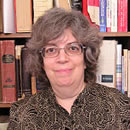 Diane Wolfthal specializes in late medieval and early modern European art. Her interests include feminist and gender studies, Jewish studies, the history of sexuality, technical art history, and the study of the intersection of money, values, and culture. Her authored books include In and Out of the Marital Bed: Seeing Sex in Renaissance Art (Yale University Press, 2010), Picturing Yiddish: Gender, Identity, and Memory in Illustrated Yiddish Books of Renaissance Italy (Leiden: Brill, 2004), Images of Rape: The “Heroic” Tradition and its Alternatives (Cambridge University Press, 1999), and The Beginnings of Netherlandish Canvas Painting (Cambridge, 1989). She co-authored Princes and Paupers: The Art of Jacques Callot (Yale, 2013) and Corpus of Fifteenth-Century Painting in the Southern Netherlands and the Principality of Liège: Early Netherlandish Paintings in Los Angeles (Brussels, KIK-IRPA, in press). She has also edited or co-edited collections of essays on the family, peace and negotiation, the rise of the monetary economy and its effect on European culture, and a Festschrift for Colin Eisler. She is a Founding Co-editor of Early Modern Women: An Interdisciplinary Journal.
Diane Wolfthal specializes in late medieval and early modern European art. Her interests include feminist and gender studies, Jewish studies, the history of sexuality, technical art history, and the study of the intersection of money, values, and culture. Her authored books include In and Out of the Marital Bed: Seeing Sex in Renaissance Art (Yale University Press, 2010), Picturing Yiddish: Gender, Identity, and Memory in Illustrated Yiddish Books of Renaissance Italy (Leiden: Brill, 2004), Images of Rape: The “Heroic” Tradition and its Alternatives (Cambridge University Press, 1999), and The Beginnings of Netherlandish Canvas Painting (Cambridge, 1989). She co-authored Princes and Paupers: The Art of Jacques Callot (Yale, 2013) and Corpus of Fifteenth-Century Painting in the Southern Netherlands and the Principality of Liège: Early Netherlandish Paintings in Los Angeles (Brussels, KIK-IRPA, in press). She has also edited or co-edited collections of essays on the family, peace and negotiation, the rise of the monetary economy and its effect on European culture, and a Festschrift for Colin Eisler. She is a Founding Co-editor of Early Modern Women: An Interdisciplinary Journal.
Professor Wolfthal is currently completing three articles: “Complicating Medieval Anti-Semitism: Class Conflict in Images of Christian Violence against Jews,” “Portraits of Old Women: Interrogating the Paradigm of Beauty,” and “When Did Servants Become Men?.” Her major current project is a book titled Household Help: Servants and Slaves in Europe and its Colonies, for which she was awarded grants from the Yale Center for British Art and the Getty Research Institute.
Paper Presentations by:
Mirjam de Baar (University of Groningen)
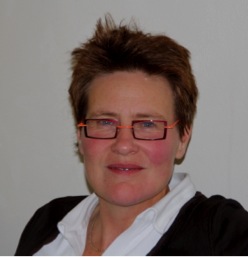 Mirjam de Baar is Professor of the Cultural History of Early Modern Christianity at the Faculty of Theology and Religious Studies of the University of Groningen. She received an MA in History from the University of Utrecht and a PhD in Theology and Religious Studies from the University of Groningen. She specializes in early modern religious history and gender history, with particular focus on the Low Countries. Her major interests include autobiographical and religious writings of women, the performance of male and female prophets in the Dutch Republic, and the distribution of books, manuscripts, and letters within European networks of religious dissenters. She has conducted in-depth research into the Flemish mystic, prophet, and religious writer Antoinette Bourignon, resulting in a book entitled ‘Ik moet spreken.’ Het spiritueel leiderschap van Antoinette Bourignon (1616-1680) (Walburg, 2004). Professor De Baar has also published many articles on Anna Maria van Schurman (1607-1678), and her co-edited books include Choosing The Better Part. Anna Maria van Schurman (1607-1678) (Kluwer, 1996), Herinnering en identiteit in het vrijzinnig Protestantisme (Verloren, 2009), Religie en biografie. De religieuze factor in de biografie (Boom, 2011) and Honderd jaar vrouwen op de kansel, 1911-2011 (Verloren, 2011).
Mirjam de Baar is Professor of the Cultural History of Early Modern Christianity at the Faculty of Theology and Religious Studies of the University of Groningen. She received an MA in History from the University of Utrecht and a PhD in Theology and Religious Studies from the University of Groningen. She specializes in early modern religious history and gender history, with particular focus on the Low Countries. Her major interests include autobiographical and religious writings of women, the performance of male and female prophets in the Dutch Republic, and the distribution of books, manuscripts, and letters within European networks of religious dissenters. She has conducted in-depth research into the Flemish mystic, prophet, and religious writer Antoinette Bourignon, resulting in a book entitled ‘Ik moet spreken.’ Het spiritueel leiderschap van Antoinette Bourignon (1616-1680) (Walburg, 2004). Professor De Baar has also published many articles on Anna Maria van Schurman (1607-1678), and her co-edited books include Choosing The Better Part. Anna Maria van Schurman (1607-1678) (Kluwer, 1996), Herinnering en identiteit in het vrijzinnig Protestantisme (Verloren, 2009), Religie en biografie. De religieuze factor in de biografie (Boom, 2011) and Honderd jaar vrouwen op de kansel, 1911-2011 (Verloren, 2011).
Professor de Baar was one of the founders, in 1988, of the Dutch Women’s Studies Group 1500-1800, and she has served on the editorial board of the Dutch Jaarboek voor Vrouwengeschiedenis. Currently, she is editor of the interdisciplinary Dutch-Belgian journal De zeventiende eeuw and of the Dutch-Belgian academic periodical on religious history Trajecta. Religie, Cultuur en Samenleving in de Nederlanden.
Martine van Elk (California State University Long Beach)
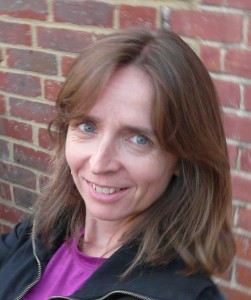 Martine van Elk is Professor of English Literature at California State University Long Beach. She is the author of numerous journal articles and book chapters on Shakespeare, vagrancy, and early modern women writers in publications such as Shakespeare Quarterly and Studies in English Literature, as well as a chapter on Terence in early modern England for Blackwell’s Companion to Terence (2013). She edited Gammer Gurton’s Needle for Broadview’s new Anthology of Medieval Drama (2012) and is co-editor of a collection of essays entitled Tudor Drama Before Shakespeare, 1485-1590 (Palgrave 2004). She is currently working on a book-length comparative study of English and Dutch women writers of the seventeenth century. Her recent publications on emblem books and friendship poetry, which include discussions of the writings of Anna Roemers Visscher, Katharina Lescailje, and Cornelia van der Veer are part of this research.
Martine van Elk is Professor of English Literature at California State University Long Beach. She is the author of numerous journal articles and book chapters on Shakespeare, vagrancy, and early modern women writers in publications such as Shakespeare Quarterly and Studies in English Literature, as well as a chapter on Terence in early modern England for Blackwell’s Companion to Terence (2013). She edited Gammer Gurton’s Needle for Broadview’s new Anthology of Medieval Drama (2012) and is co-editor of a collection of essays entitled Tudor Drama Before Shakespeare, 1485-1590 (Palgrave 2004). She is currently working on a book-length comparative study of English and Dutch women writers of the seventeenth century. Her recent publications on emblem books and friendship poetry, which include discussions of the writings of Anna Roemers Visscher, Katharina Lescailje, and Cornelia van der Veer are part of this research.
Manon van der Heijden (Leiden University)
 Manon van der Heijden is a social historian working in the field of early modern urban history at Leiden University. She worked at Erasmus University, Rotterdam, from 1992 to 1998, and received her PhD from that institution in 1998. She held a position at the Vrije Universiteit of Amsterdam from 1999 until 2006, when she was appointed Professor of History at Leiden. In 2005 she was granted an NWO VIDI grant for the project Civil Services and Urban Communities, 1500-1800, and in 2012 she received an NWO VICI grant for the project Crime and Gender 1600-1900. Her most recent publication is Misdadige vrouwen. Criminaliteit en rechtspraak in Holland 1600-1800 (Bert Bakker, 2014).
Manon van der Heijden is a social historian working in the field of early modern urban history at Leiden University. She worked at Erasmus University, Rotterdam, from 1992 to 1998, and received her PhD from that institution in 1998. She held a position at the Vrije Universiteit of Amsterdam from 1999 until 2006, when she was appointed Professor of History at Leiden. In 2005 she was granted an NWO VIDI grant for the project Civil Services and Urban Communities, 1500-1800, and in 2012 she received an NWO VICI grant for the project Crime and Gender 1600-1900. Her most recent publication is Misdadige vrouwen. Criminaliteit en rechtspraak in Holland 1600-1800 (Bert Bakker, 2014).
Professor Van der Heijden is interested in the history of criminal justice, the family, urban finances, citizenship, civil society and public services. She has served as editor of the Dutch-Flemish Low Countries Journal of Social and Economic History (www.tseg.nl), is a member of the editorial board of Crime, History & Societies, and is editor of the Flemish-Dutch journal Stadsgeschiedenis.
Danielle van den Heuvel (University of Kent)
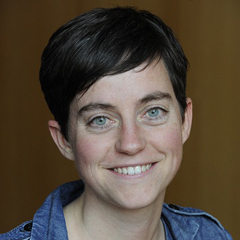 Danielle van den Heuvel obtained a PhD from the University of Utrecht in 2007. She moved to the University of Kent in 2012 after holding postdoctoral research fellowships at Girton College and the Faculty of Economics at the University of Cambridge. The results of her research into the extraordinary position of women in early modern Dutch society are published in two books: ‘Bij uijtlandigheijt van haar man’: echtgenotes van VOC-zeelieden, aangemonsterd voor de kamer Enkhuizen (1700-1750) (Aksant 2005) and Women and entrepreneurship: female traders in the Northern Netherlands, c. 1580-1815 (Aksant 2007) and several articles and book chapters. Her work on Dutch sailors’ wives was awarded the 2003 J.R Bruijn Prize, and her work on female entrepreneurship has won her four prizes, including the 2008 Thirsk-Feinstein Dissertation Prize and the 2009 IEHA Dissertation Prize.
Danielle van den Heuvel obtained a PhD from the University of Utrecht in 2007. She moved to the University of Kent in 2012 after holding postdoctoral research fellowships at Girton College and the Faculty of Economics at the University of Cambridge. The results of her research into the extraordinary position of women in early modern Dutch society are published in two books: ‘Bij uijtlandigheijt van haar man’: echtgenotes van VOC-zeelieden, aangemonsterd voor de kamer Enkhuizen (1700-1750) (Aksant 2005) and Women and entrepreneurship: female traders in the Northern Netherlands, c. 1580-1815 (Aksant 2007) and several articles and book chapters. Her work on Dutch sailors’ wives was awarded the 2003 J.R Bruijn Prize, and her work on female entrepreneurship has won her four prizes, including the 2008 Thirsk-Feinstein Dissertation Prize and the 2009 IEHA Dissertation Prize.
Her most recent work investigates street vending in early modern Europe. Funded through a British Academy Postdoctoral Fellowship, her research project Shadow Economies. Informality, Institutions and Economic Development in Northwest Europe (1600-1800) investigates informal retailing, and examines who was operating in the shadow economy, why they did so, and what effects this had on the people involved and on society more widely. She also works on the history of food selling, women’s work, guilds, consumption and retail development. She is very keen on interdisciplinary approaches to the topics she studies, and recently organized an interdisciplinary conference on food hawking to facilitate intellectual exchange across disciplines. A volume based on the papers given in the conference is currently in preparation.
Frima Fox Hofrichter (Pratt Institute)
 Frima Fox Hofrichter is Professor of History of Art and Design at the Pratt Institute. She is a specialist in early modern art, and her writing and teaching are informed by issues of gender and class. She is the author of a monograph on the Dutch genre, portrait, and still-life artist Judith Leyster, as well as numerous articles in the field of Dutch art, especially the art of Haarlem and feminist analyses. Professor Hofrichter has also organized and curated several Dutch exhibitions, contributed to exhibition catalogues and been a consultant to major auction houses.
She received a bachelor’s degree from Brooklyn College, an MA from Hunter College, and a PhD from Rutgers University. She is co-author of Janson’s History of Art: The Western Tradition (the Baroque and Rococo sections for the 7th and 8th editions, Pearson Prentice Hall, 2007 & 2010), and has been the Dutch Book Review Editor (2008-2013) for the Historians of Netherlandish Art (HNA). She was also a member of the College Art Association’s Committee on Women in the Arts and Chair of the Jury for the Distinguished Feminist Award (2012).
Frima Fox Hofrichter is Professor of History of Art and Design at the Pratt Institute. She is a specialist in early modern art, and her writing and teaching are informed by issues of gender and class. She is the author of a monograph on the Dutch genre, portrait, and still-life artist Judith Leyster, as well as numerous articles in the field of Dutch art, especially the art of Haarlem and feminist analyses. Professor Hofrichter has also organized and curated several Dutch exhibitions, contributed to exhibition catalogues and been a consultant to major auction houses.
She received a bachelor’s degree from Brooklyn College, an MA from Hunter College, and a PhD from Rutgers University. She is co-author of Janson’s History of Art: The Western Tradition (the Baroque and Rococo sections for the 7th and 8th editions, Pearson Prentice Hall, 2007 & 2010), and has been the Dutch Book Review Editor (2008-2013) for the Historians of Netherlandish Art (HNA). She was also a member of the College Art Association’s Committee on Women in the Arts and Chair of the Jury for the Distinguished Feminist Award (2012).
Dr. Hofrichter’s current research is on images of old women as well as the market and the early history of collecting. In addition to graduate seminars on Rembrandt’s women, Vermeer, Bernini and the Baroque, and Dutch still-life painting, Professor Hofrichter also teaches the undergraduate survey, Baroque visual culture and an undergraduate senior seminar for HAD majors called “History of Collecting: Meaning, Markets and Museums.”
Tine de Moor (University of Utrecht)
 Tine De Moor is Professor of “Institutions for Collective Action in Historical Perspective” at the Department for Social and Economic History of Utrecht University. Social and economic issues are an overarching theme in her work, with specific foci on institutions for collective action such as commons and guilds, on household composition, women’s position within the household and society at large, the development, spread and impact of marriage patterns and property relations. Her research projects on institutions for collective action (a.o. “United We Stand” and “Common Rules”) deal with the emergence, evolution and functioning of various institutions and their relationship with changes in economic growth and the household composition in Early Modern Europe. She has worked extensively on early modern marriage patterns, on which she organized an international conference in 2010, and which ties into her new NWO-funded project “Nature or Nurture? A Search for the Institutional and Biological Determinants of Life Expectancy in Europe During the Early Modern Period.” Her projects always take an interdisciplinary approach and she explicitly links historical research and findings to present-day developments in economy and society, hereby also actively engaging citizens in working and thinking along with scientific researchers. Professor De Moor’s work has been published in numerous books and journals such as Economic History Review, Historical Methods, and Continuity and Change. She is also co-founder of the peer-reviewed International Journal of the Commons, and she has been member of the Executive Council of the International Association for the Study of the Commons since 2008. Professor De Moor is also a member of the Young Academy of Europe and of The Young Academy of The Royal Netherlands Academy of Arts and Sciences (KNAW). Further details on her work and the Institutions for Collective Action research team at UU can be found at www.collective-action.info.
Tine De Moor is Professor of “Institutions for Collective Action in Historical Perspective” at the Department for Social and Economic History of Utrecht University. Social and economic issues are an overarching theme in her work, with specific foci on institutions for collective action such as commons and guilds, on household composition, women’s position within the household and society at large, the development, spread and impact of marriage patterns and property relations. Her research projects on institutions for collective action (a.o. “United We Stand” and “Common Rules”) deal with the emergence, evolution and functioning of various institutions and their relationship with changes in economic growth and the household composition in Early Modern Europe. She has worked extensively on early modern marriage patterns, on which she organized an international conference in 2010, and which ties into her new NWO-funded project “Nature or Nurture? A Search for the Institutional and Biological Determinants of Life Expectancy in Europe During the Early Modern Period.” Her projects always take an interdisciplinary approach and she explicitly links historical research and findings to present-day developments in economy and society, hereby also actively engaging citizens in working and thinking along with scientific researchers. Professor De Moor’s work has been published in numerous books and journals such as Economic History Review, Historical Methods, and Continuity and Change. She is also co-founder of the peer-reviewed International Journal of the Commons, and she has been member of the Executive Council of the International Association for the Study of the Commons since 2008. Professor De Moor is also a member of the Young Academy of Europe and of The Young Academy of The Royal Netherlands Academy of Arts and Sciences (KNAW). Further details on her work and the Institutions for Collective Action research team at UU can be found at www.collective-action.info.
Martha Moffitt Peacock (Brigham Young University)
 Martha Moffitt Peacock is Professor of Art History at Brigham Young University. She received a bachelor’s degree from Brigham Young University and an MA and PhD from Ohio State University, Columbus. Her research centers on the relationship of art to the lives of women in the Dutch Republic, and her articles “Proverbial Reframing—Rebuking and Revering Women in Trousers” (Journal of the Walters Art Gallery, 1999), “Domesticity in the Public Sphere” (in Saints, Sinners, and Sisters. Gender and Northern Art in Medieval and Early Modern Europe, Ashgate, 2003), and “The Imaging and Economics of Women Consumers and Merchants in the Netherlandish Marketplace” (Urban Space, 2009) deal with themes of female empowerment through art. She has also published and presented on women artists such as Geertruydt Roghman, Anna Maria van Schurman, and Joanna Koerten. Professor Moffitt Peacock has also published on Bosch and Rembrandt, contributing to and editing two exhibition catalogs on the prints of Rembrandt and his circle at B.Y.U. Currently, she is working on her book entitled Heroines, Harpies, and Housewives: Imaging Women of Consequence in the Dutch Golden Age.
Martha Moffitt Peacock is Professor of Art History at Brigham Young University. She received a bachelor’s degree from Brigham Young University and an MA and PhD from Ohio State University, Columbus. Her research centers on the relationship of art to the lives of women in the Dutch Republic, and her articles “Proverbial Reframing—Rebuking and Revering Women in Trousers” (Journal of the Walters Art Gallery, 1999), “Domesticity in the Public Sphere” (in Saints, Sinners, and Sisters. Gender and Northern Art in Medieval and Early Modern Europe, Ashgate, 2003), and “The Imaging and Economics of Women Consumers and Merchants in the Netherlandish Marketplace” (Urban Space, 2009) deal with themes of female empowerment through art. She has also published and presented on women artists such as Geertruydt Roghman, Anna Maria van Schurman, and Joanna Koerten. Professor Moffitt Peacock has also published on Bosch and Rembrandt, contributing to and editing two exhibition catalogs on the prints of Rembrandt and his circle at B.Y.U. Currently, she is working on her book entitled Heroines, Harpies, and Housewives: Imaging Women of Consequence in the Dutch Golden Age.
Andrea Pearson (American University)
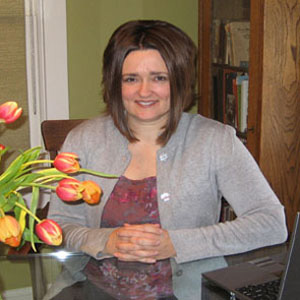 Andrea Pearson, an Associate Professor of Art History at American University in Washington, DC, is a specialist in Netherlandish art of the fifteenth and early sixteenth centuries. Among her research interests are gender and sexuality, portraiture, and devotional art and practices. Her current book project explores visuality and same-sex desire in images of the infants Christ and St. John the Baptist produced in Antwerp in the first half of the 16th century. Professor Pearson is the author of Envisioning Gender in Burgundian Devotional Art, 1350-1530: Experience, Authority, Resistance (Ashgate 2005), for which she was awarded Honorable Mention for Best First Book by the Society for Medieval Feminist Scholarship, and editor of Women and Portraits in Early Modern Europe (Ashgate 2008). Her essay, “Gendered Subject, Gendered Spectator: Mary Magdalene in the Gaze of Margaret of York,” published in Gesta in 2005, was named Article of the Month by Feminae. Her work has appeared as well in Renaissance Quarterly, the Sixteenth Century Journal, and Woman’s Art Journal. She is a contributor to The Ashgate Research Companion to Women and Gender in Early Modern Europe (2013) and to two forthcoming interdisciplinary volumes, one on Colette of Corbie, with Brill, and the other on women, art, and culture in fifteenth-century Europe, with Brepols. Professor Pearson is the liaison for the Society for the Study of Early Modern Women to the College Art Association, for which she organizes a session at the annual conference. She was also a recipient of a Distinguished Teaching Award for her work with undergraduate and graduate students at Bloomsburg University of Pennsylvania, where she was a faculty member from 1995 to 2008.
Andrea Pearson, an Associate Professor of Art History at American University in Washington, DC, is a specialist in Netherlandish art of the fifteenth and early sixteenth centuries. Among her research interests are gender and sexuality, portraiture, and devotional art and practices. Her current book project explores visuality and same-sex desire in images of the infants Christ and St. John the Baptist produced in Antwerp in the first half of the 16th century. Professor Pearson is the author of Envisioning Gender in Burgundian Devotional Art, 1350-1530: Experience, Authority, Resistance (Ashgate 2005), for which she was awarded Honorable Mention for Best First Book by the Society for Medieval Feminist Scholarship, and editor of Women and Portraits in Early Modern Europe (Ashgate 2008). Her essay, “Gendered Subject, Gendered Spectator: Mary Magdalene in the Gaze of Margaret of York,” published in Gesta in 2005, was named Article of the Month by Feminae. Her work has appeared as well in Renaissance Quarterly, the Sixteenth Century Journal, and Woman’s Art Journal. She is a contributor to The Ashgate Research Companion to Women and Gender in Early Modern Europe (2013) and to two forthcoming interdisciplinary volumes, one on Colette of Corbie, with Brill, and the other on women, art, and culture in fifteenth-century Europe, with Brepols. Professor Pearson is the liaison for the Society for the Study of Early Modern Women to the College Art Association, for which she organizes a session at the annual conference. She was also a recipient of a Distinguished Teaching Award for her work with undergraduate and graduate students at Bloomsburg University of Pennsylvania, where she was a faculty member from 1995 to 2008.
Katlijne van der Stighelen (University of Leuven)
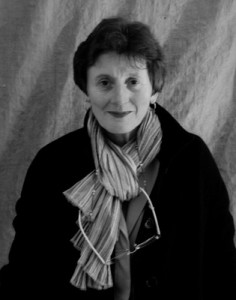 Katlijne van der Stighelen studied art history at the University of Leuven, where she received her PhD in 1988. Between 1984 and 1994 she worked as a Research Fellow and a Senior Research Fellow of the Belgian National Fund for Scientific Research. In 1994 she was appointed Associate Professor at the University of Antwerp and at the University of Leuven, and in 2001 she was appointed Ordinarius Professor at the latter institution. She has published books on the learned Anna Maria van Schurman (1607-1678), on the Antwerp painter Cornelis de Vos (1584/85-1651), on Anthony van Dyck (1599-1641) and on the tradition of Flemish portraiture. In addition she has published widely on many aspects of Flemish art and female artistry in the sixteenth and seventeenth centuries. In the Fall of 2002 she was holder of the Rubens Chair at the University of California Berkeley. Together with Hans Vlieghe she is currently the editor of the series Pictura Nova. Studies in 16th– and 17th-Century Flemish Painting and Drawing (Brepols), which has produced no less than eighteen monographs since 1996.
Katlijne van der Stighelen studied art history at the University of Leuven, where she received her PhD in 1988. Between 1984 and 1994 she worked as a Research Fellow and a Senior Research Fellow of the Belgian National Fund for Scientific Research. In 1994 she was appointed Associate Professor at the University of Antwerp and at the University of Leuven, and in 2001 she was appointed Ordinarius Professor at the latter institution. She has published books on the learned Anna Maria van Schurman (1607-1678), on the Antwerp painter Cornelis de Vos (1584/85-1651), on Anthony van Dyck (1599-1641) and on the tradition of Flemish portraiture. In addition she has published widely on many aspects of Flemish art and female artistry in the sixteenth and seventeenth centuries. In the Fall of 2002 she was holder of the Rubens Chair at the University of California Berkeley. Together with Hans Vlieghe she is currently the editor of the series Pictura Nova. Studies in 16th– and 17th-Century Flemish Painting and Drawing (Brepols), which has produced no less than eighteen monographs since 1996.
Patricia Stoop (University of Antwerp)
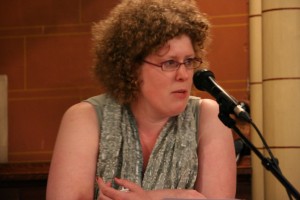 Patricia Stoop holds a postdoctoral teaching position in Historical Dutch Literature in the Department of Literature at the University of Antwerp, where she is also a member of the Ruusbroec Institute for Research in the History of Spirituality. She is currently Visiting Brueghel Professor in the Department of Germanic Languages and Literatures at the University of Pennsylvania. Dr. Stoop holds a BA in Greek and Latin (University of Nijmegen, 1993), and a licentiaat in Dutch Literature and Languages (Nijmegen 1997). She received her PhD in Literature from the University of Antwerp in 2009. Her book, Schrijven in commissie: de zusters uit het Brusselse klooster Jericho en de preken van hun biechtvaders (ca. 1456-1510) (Verloren, 2013), is a study of the fifteenth-century vernacular convent sermons from the Brussels convent of Jericho and their literary and historical context. As a postdoctoral fellow of the Research Foundation Flanders (FWO) she has studied female authorship and authority in late medieval and early modern vernacular sermons from the Low Countries (2010–13). Additionally, she is one of the initiators of the international and interdisciplinary project Nuns’ Literacies in Medieval Europe (in collaboration with Virginia Blanton, University of Missouri-Kansas City and Veronica O’Mara, University of Hull). Dr. Stoop has taught on several topics in the field of medieval and early modern culture and literature, and her main areas of interest include women writers, female authorship, female participation in the intellectual, religious, cultural and literary field of the Middle Ages and Early Modern period, religious identity, and sermon studies.
Patricia Stoop holds a postdoctoral teaching position in Historical Dutch Literature in the Department of Literature at the University of Antwerp, where she is also a member of the Ruusbroec Institute for Research in the History of Spirituality. She is currently Visiting Brueghel Professor in the Department of Germanic Languages and Literatures at the University of Pennsylvania. Dr. Stoop holds a BA in Greek and Latin (University of Nijmegen, 1993), and a licentiaat in Dutch Literature and Languages (Nijmegen 1997). She received her PhD in Literature from the University of Antwerp in 2009. Her book, Schrijven in commissie: de zusters uit het Brusselse klooster Jericho en de preken van hun biechtvaders (ca. 1456-1510) (Verloren, 2013), is a study of the fifteenth-century vernacular convent sermons from the Brussels convent of Jericho and their literary and historical context. As a postdoctoral fellow of the Research Foundation Flanders (FWO) she has studied female authorship and authority in late medieval and early modern vernacular sermons from the Low Countries (2010–13). Additionally, she is one of the initiators of the international and interdisciplinary project Nuns’ Literacies in Medieval Europe (in collaboration with Virginia Blanton, University of Missouri-Kansas City and Veronica O’Mara, University of Hull). Dr. Stoop has taught on several topics in the field of medieval and early modern culture and literature, and her main areas of interest include women writers, female authorship, female participation in the intellectual, religious, cultural and literary field of the Middle Ages and Early Modern period, religious identity, and sermon studies.
Margit Thofner (University of East Anglia)
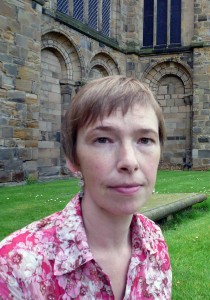 Margit Thøfner is Senior Lecturer in the Department of Art History and World Art Studies at the University of East Anglia in Norwich, England. She was born and educated in Denmark, and then completed her BA and MA in art history at the Courtauld Institute of Art in London. She was awarded a scholarship to the University of Sussex where she completed her PhD in 1996. Dr. Thøfner then taught at the Universities of St. Andrews and Bristol before taking up her current post. She has published a number of articles on the representation of women in the Southern Netherlands and, more broadly, on public ceremonial and religious artworks; her book A Common Art: Urban Ceremonial in Antwerp and Brussels during and after the Dutch Revolt appeared in 2007. Currently, Dr. Thøfner serves as one of the three editors of World Art, a new journal in its fourth year that is devoted to broadening both the methods and the geographical remit of art history, conventionally a very Eurocentric discipline.
Margit Thøfner is Senior Lecturer in the Department of Art History and World Art Studies at the University of East Anglia in Norwich, England. She was born and educated in Denmark, and then completed her BA and MA in art history at the Courtauld Institute of Art in London. She was awarded a scholarship to the University of Sussex where she completed her PhD in 1996. Dr. Thøfner then taught at the Universities of St. Andrews and Bristol before taking up her current post. She has published a number of articles on the representation of women in the Southern Netherlands and, more broadly, on public ceremonial and religious artworks; her book A Common Art: Urban Ceremonial in Antwerp and Brussels during and after the Dutch Revolt appeared in 2007. Currently, Dr. Thøfner serves as one of the three editors of World Art, a new journal in its fourth year that is devoted to broadening both the methods and the geographical remit of art history, conventionally a very Eurocentric discipline.
Ping-Yuan Wang (Ohio University Lancaster)
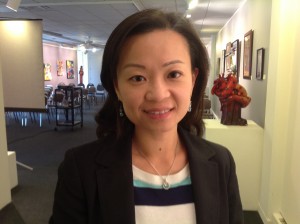 Ping-Yuan Wang received her PhD from Yale University in 2009 and is currently Assistant Professor of History at Ohio University, Lancaster campus. Her recent publications include a book chapter, “Telling the Truth about Vocation: The Death Notices of the Visitandines in Brussels, 1683-1714,” in A Linking of Heaven and Earth: Studies in Religious and Cultural History in Honor of Carlos M. N. Eire, eds. Emily Michelson, Scott Taylor, and Mary Noll Venables (Ashgate 2012), and a second essay on the Visitandines’ assertion of spiritual authority and collective identity through epistolary exchange is forthcoming in 2014. Her book manuscript in preparation, Defining Community: Convent Writings in the Seventeenth-Century Spanish Netherlands, examines the biographical accounts, correspondence, obituaries, and convent chronicles of the Discalced Carmelite, Visitandine, and English Benedictine nuns in Brussels. Through the lens of the lives, aspirations, and struggles of ordinary nuns from three distinctive linguistic, spiritual, and cultural traditions, Defining Community reveals in broad terms how the community furnished the conditions for individual self-expression and how individuals shaped their own destiny by upholding collective values. By exploring the mutually reinforcing relationship between individuals and their community, her work integrates female monastic experience into a broader historical discussion of individual-community dynamics in early modern Europe. Research for this project has most recently been funded by a competitive grant from the Ohio University Research Council.
Ping-Yuan Wang received her PhD from Yale University in 2009 and is currently Assistant Professor of History at Ohio University, Lancaster campus. Her recent publications include a book chapter, “Telling the Truth about Vocation: The Death Notices of the Visitandines in Brussels, 1683-1714,” in A Linking of Heaven and Earth: Studies in Religious and Cultural History in Honor of Carlos M. N. Eire, eds. Emily Michelson, Scott Taylor, and Mary Noll Venables (Ashgate 2012), and a second essay on the Visitandines’ assertion of spiritual authority and collective identity through epistolary exchange is forthcoming in 2014. Her book manuscript in preparation, Defining Community: Convent Writings in the Seventeenth-Century Spanish Netherlands, examines the biographical accounts, correspondence, obituaries, and convent chronicles of the Discalced Carmelite, Visitandine, and English Benedictine nuns in Brussels. Through the lens of the lives, aspirations, and struggles of ordinary nuns from three distinctive linguistic, spiritual, and cultural traditions, Defining Community reveals in broad terms how the community furnished the conditions for individual self-expression and how individuals shaped their own destiny by upholding collective values. By exploring the mutually reinforcing relationship between individuals and their community, her work integrates female monastic experience into a broader historical discussion of individual-community dynamics in early modern Europe. Research for this project has most recently been funded by a competitive grant from the Ohio University Research Council.
Cordula van Wyhe (University of York)
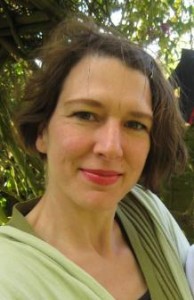 Cordula van Wyhe is Lecturer in the History of Art and Chair of Graduate Studies at the University of York. She received an MA from University College in London and a PhD from the Courtauld Institute. Before joining the History of Art Department at York in 2005, she was the Speelman-Newton Fellow in Netherlandish Art at Wolfson College Cambridge (2000-2005). Her research foci lie in early modern cultural history with particular emphasis on the seventeenth-century Low Countries. Major interests include religious and political imagery, royal patronage, and court culture. Dr. Van Wyhe has published widely on female monasticism and mysticism and on art at the Brussels court of the archdukes Isabella and Albert. She is editor of Female Monasticism in Early Modern Europe. An Interdisciplinary View (Ashgate 2008), Isabella Clara Eugenia: Female Sovereignty at the Courts in Madrid and Brussels (Centro de Estudios Europa Hispánica and Paul Holberton Publishing, 2012), and a modern translation of Margaret of Noort’s Spiritual writings (in press).
Cordula van Wyhe is Lecturer in the History of Art and Chair of Graduate Studies at the University of York. She received an MA from University College in London and a PhD from the Courtauld Institute. Before joining the History of Art Department at York in 2005, she was the Speelman-Newton Fellow in Netherlandish Art at Wolfson College Cambridge (2000-2005). Her research foci lie in early modern cultural history with particular emphasis on the seventeenth-century Low Countries. Major interests include religious and political imagery, royal patronage, and court culture. Dr. Van Wyhe has published widely on female monasticism and mysticism and on art at the Brussels court of the archdukes Isabella and Albert. She is editor of Female Monasticism in Early Modern Europe. An Interdisciplinary View (Ashgate 2008), Isabella Clara Eugenia: Female Sovereignty at the Courts in Madrid and Brussels (Centro de Estudios Europa Hispánica and Paul Holberton Publishing, 2012), and a modern translation of Margaret of Noort’s Spiritual writings (in press).
Introductory Remarks and Comments by:
Anne-Laure Van Bruaene, Ghent University
Anne-Laure Van Bruaene is a specialist of early modern cultural history with a focus on urban history at Ghent University. Most of her work concerns the Low Countries in the period from ca. 1450 to ca. 1650. She has published two monographs on urban chronicles and urban literary societies respectively. She has been awarded a number of scientific prizes. In 2006, she was the laureate of the William Nelson Prize (Renaissance Society of America) for the best article in Renaissance Quarterly. Anne-Laure Van Bruaene is a member of the editorial boards of, among others, Renaissance Studies (UK), BMGN-Low Countries Historical Review (NL) and Stadsgeschiedenis (B). In 2012, she co-organised together with the Centre for Reformation and Renaissance Studies (Toronto) an interdisciplinary conference on “Netherlandish Culture of the sixteenth century.”
Ellen Decraene, University of Antwerp
 Dr. Ellen Decraene currently works as a researcher at the University of Antwerp and is a member of the Centre of Urban History. She recently defended her doctoral dissertation Boundaries transcended. Female agency and religious confraternities within a small early modern town in the Southern Netherlands (Aalst), which addresses post-Tridentine religious confraternities as an alternative lens through which to study female agency within early modern communal life. Her main research interests are gender history, civil society research and religious history.
Dr. Ellen Decraene currently works as a researcher at the University of Antwerp and is a member of the Centre of Urban History. She recently defended her doctoral dissertation Boundaries transcended. Female agency and religious confraternities within a small early modern town in the Southern Netherlands (Aalst), which addresses post-Tridentine religious confraternities as an alternative lens through which to study female agency within early modern communal life. Her main research interests are gender history, civil society research and religious history.
Luc Duerloo, University of Antwerp
 Luc Duerloo is Professor of History at the University of Antwerp, where he teaches early modern political history. He defended his doctorate on the nobility, heraldic officials and the politics of bureaucratisation in the Austrian Netherlands at the University of Leuven in 1986. Building on this research, he published the four volume Armorial de la noblesse belge together with Paul Janssens. He was scientific secretary of the exhibition Karel-Alexander van Lotharingen: Mens, veldheer, grootmeester (Landcommanderij Alden Biesen, 1987) and curator of the exhibitions Albrecht & Isabella, 1598−1621 (Koninklijke Musea voor Kunst en Geschiedenis Brussels, 1998) and Hungaria regia (Paleis voor Schone Kunsten Brussels, 1999). In the course of his research project on the court of the Archdukes Albert and Isabella, he was Hans Kohn Member of the School of Historical Studies of the Institute for Advanced Study in Princeton (spring semester 2007-2008) and visiting scholar of the Department of History of Columbia University (spring semester 2009-2010).
Luc Duerloo is Professor of History at the University of Antwerp, where he teaches early modern political history. He defended his doctorate on the nobility, heraldic officials and the politics of bureaucratisation in the Austrian Netherlands at the University of Leuven in 1986. Building on this research, he published the four volume Armorial de la noblesse belge together with Paul Janssens. He was scientific secretary of the exhibition Karel-Alexander van Lotharingen: Mens, veldheer, grootmeester (Landcommanderij Alden Biesen, 1987) and curator of the exhibitions Albrecht & Isabella, 1598−1621 (Koninklijke Musea voor Kunst en Geschiedenis Brussels, 1998) and Hungaria regia (Paleis voor Schone Kunsten Brussels, 1999). In the course of his research project on the court of the Archdukes Albert and Isabella, he was Hans Kohn Member of the School of Historical Studies of the Institute for Advanced Study in Princeton (spring semester 2007-2008) and visiting scholar of the Department of History of Columbia University (spring semester 2009-2010).
His current research focusses on the Court of the Archdukes Albert and Isabella, their international policies and artistic patronage. As a first result he published, in collaboration with Marc Wingens, Scherpenheuvel: Het Jeruzalem van de Lage Landen (Leuven, 2002), a book on the creation of the pilgrimage shrine of Scherpenheuvel and its emblematic artistic programme. The monograph Dynasty and Piety: Archduke Albert (1598-1621) and Habsburg Political Culture in an Age of Religious Wars (Farnham, 2012) won the Filips van Marnix van Sint Aldegonde prize for history 2011.
Lia van Gemert, University of Amsterdam
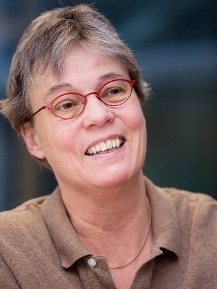 E.M.P. van Gemert is Professor of Historical Dutch Literature in the Faculty of Humanities of the University of Amsterdam (UvA). Her current research focuses primarily on the dynamic relationships between literature and society in Dutch prose from the seventeenth and eighteenth centuries. After completing her dissertation on the function of the chorus in early modern Dutch drama (Utrecht University, 1990), she published widely on diverse literary genres (prose, drama, emblems, lyric and epic poetry), the meaning of gender, and the valorisation of academic knowledge. She has also contributed to projects geared towards secondary school education, such as the series Tekst in Context and the educational website www.literatuurgeschiedenis.nl. She served as the chief editor of an international team that published an English-language anthology of historical Dutch women’s literature, Women’s writing from the Low Countries 1200-1875: a bilingual anthology (Amsterdam University Press, 2010).
E.M.P. van Gemert is Professor of Historical Dutch Literature in the Faculty of Humanities of the University of Amsterdam (UvA). Her current research focuses primarily on the dynamic relationships between literature and society in Dutch prose from the seventeenth and eighteenth centuries. After completing her dissertation on the function of the chorus in early modern Dutch drama (Utrecht University, 1990), she published widely on diverse literary genres (prose, drama, emblems, lyric and epic poetry), the meaning of gender, and the valorisation of academic knowledge. She has also contributed to projects geared towards secondary school education, such as the series Tekst in Context and the educational website www.literatuurgeschiedenis.nl. She served as the chief editor of an international team that published an English-language anthology of historical Dutch women’s literature, Women’s writing from the Low Countries 1200-1875: a bilingual anthology (Amsterdam University Press, 2010).
Van Gemert has been Professor of Historical Dutch Literature after 1500 at Utrecht University since 2000. She formerly worked at the Radboud University Nijmegen as Professor of Older Dutch Literature until 1840. She has also worked as a lecturer in Dutch Literature from 1550 to 1850 at Utrecht University, and as a lecturer in Dutch Literature at the Hogeschool van Amsterdam (Amsterdam City College). Van Gemert is a member of the executive board of the Humanities division of the NWO (Netherlands Organization for Scientific Research), the Stichting Nederlandse Literaire Klassieken (Dutch Association for Literary Classics), and the Werkgroep Achttiende Eeuw (Dutch-Belgian Society for Eighteenth-Century Studies), and is also a member of the advisory council of the NIAS (Netherlands Institute for Advanced Study in the Humanities and Social Sciences).
Julie de Groot, University of Antwerp
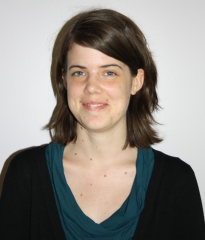 Julie De Groot is a PhD Fellow of the Research Foundation-Flanders (FWO) and a member of the Centre for Urban History at the University of Antwerp. She is working on a project on the meaning, use and decoration of domestic spaces in cities of the Southern Low Countries (Antwerp and Bruges) during the long sixteenth century (1450-1600). She received a Master’s Degree in History in 2010 from the University of Antwerp after having completed a research project concerning domestic servant girls in late medieval Ghent, supervised by Professor Peter Stabel. The results of this research were published in Stadsgeschiedenis (2011).
Julie De Groot is a PhD Fellow of the Research Foundation-Flanders (FWO) and a member of the Centre for Urban History at the University of Antwerp. She is working on a project on the meaning, use and decoration of domestic spaces in cities of the Southern Low Countries (Antwerp and Bruges) during the long sixteenth century (1450-1600). She received a Master’s Degree in History in 2010 from the University of Antwerp after having completed a research project concerning domestic servant girls in late medieval Ghent, supervised by Professor Peter Stabel. The results of this research were published in Stadsgeschiedenis (2011).
Together with Ariadne Schmidt and Isabelle Devos, she is currently preparing an edited volume Single Life and the City, 1200-1900 published by Palgrave (2015), based on the papers presented at the international conference ‘Singles in the Cities of North-West Europe, 1200-1900’ (Antwerp 2013).
Aaron Hyman, University of California at Berkeley
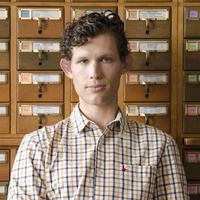 Aaron Hyman is at work on a dissertation entitled Rubens in a New World: Prints, Authorship, and Transatlantic Intertextuality, which explores the transmission of printed compositions after the Flemish artist Peter Paul Rubens to Latin America in order to reassess modalities of authorship and notions of intertextuality in the early modern world. He will spend the 2014-15 academic year and summer in residence at the Rubenianum in Antwerp, Belgium with the support of a Belgian American Educational Foundation fellowship (Fulbright awarded, declined). In 2015 he will give papers at the Renaissance Society of America annual conference, “Books and Print between Cultures, 1400-1800” at Amherst College, and invited presentations at the Institut für Kunstgeschichte (Bern, Switzerland) and the Rubenianum (Antwerp, Belgium). He is the co-author with Barbara Mundy of “Painting in New Spain, 1521-1820” (Oxford Bibliographies Online, 2013) and “Out of the Shadow of Vasari: Towards a New Model of the ‘Artist’ in Colonial Latin America” (forthcoming, Colonial Latin American Review).
Aaron Hyman is at work on a dissertation entitled Rubens in a New World: Prints, Authorship, and Transatlantic Intertextuality, which explores the transmission of printed compositions after the Flemish artist Peter Paul Rubens to Latin America in order to reassess modalities of authorship and notions of intertextuality in the early modern world. He will spend the 2014-15 academic year and summer in residence at the Rubenianum in Antwerp, Belgium with the support of a Belgian American Educational Foundation fellowship (Fulbright awarded, declined). In 2015 he will give papers at the Renaissance Society of America annual conference, “Books and Print between Cultures, 1400-1800” at Amherst College, and invited presentations at the Institut für Kunstgeschichte (Bern, Switzerland) and the Rubenianum (Antwerp, Belgium). He is the co-author with Barbara Mundy of “Painting in New Spain, 1521-1820” (Oxford Bibliographies Online, 2013) and “Out of the Shadow of Vasari: Towards a New Model of the ‘Artist’ in Colonial Latin America” (forthcoming, Colonial Latin American Review).
Véronique van de Kerckhof, Rubenianum
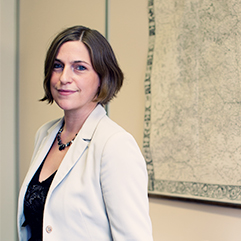 After receiving her PhD from the University of Leuven in 1997, Véronique Van de Kerckhof worked as a research assistant at the Royal Museums of Fine Arts of Belgium for the exhibition The Painter and the Surveyor: Brussels and the Former duchy of Brabant. From 2000 to 2008 she worked as an Assistant Curator, first at the Rubenshuis and then at the Museum Plantin-Moretus/Prentenkabinet, where she coordinated several exhibitions. In 2008 and 2009 Dr. Van de Kerckhof worked with the team entrusted with preparing the opening of the new Museum M in Leuven, and since 2010 she has been director of the Rubenianum, where she oversees collections, research projects, and hosting programs for graduate students as well as advanced scholars.
After receiving her PhD from the University of Leuven in 1997, Véronique Van de Kerckhof worked as a research assistant at the Royal Museums of Fine Arts of Belgium for the exhibition The Painter and the Surveyor: Brussels and the Former duchy of Brabant. From 2000 to 2008 she worked as an Assistant Curator, first at the Rubenshuis and then at the Museum Plantin-Moretus/Prentenkabinet, where she coordinated several exhibitions. In 2008 and 2009 Dr. Van de Kerckhof worked with the team entrusted with preparing the opening of the new Museum M in Leuven, and since 2010 she has been director of the Rubenianum, where she oversees collections, research projects, and hosting programs for graduate students as well as advanced scholars.
Sarah Moran, University of Antwerp
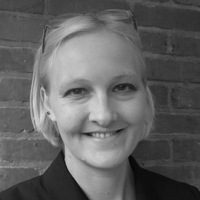 Sarah Moran received her PhD in 2010 from Brown University, and she held a postdoctoral position at the Institute for Art History at the University of Bern until 2013. She is currently a Research Fellow with the Swiss National Science Foundation, hosted at the University of Antwerp and the Rubenianum. Her primary research interests center on cultural production in the Counter-Reformation Southern Low Countries, with foci on women’s patronage, material culture, religious art and architecture, public performance, authorship, and image theory. She is also especially interested in questions of historical methodology and in the potential of interdisciplinarity to open up new areas of research.
Sarah Moran received her PhD in 2010 from Brown University, and she held a postdoctoral position at the Institute for Art History at the University of Bern until 2013. She is currently a Research Fellow with the Swiss National Science Foundation, hosted at the University of Antwerp and the Rubenianum. Her primary research interests center on cultural production in the Counter-Reformation Southern Low Countries, with foci on women’s patronage, material culture, religious art and architecture, public performance, authorship, and image theory. She is also especially interested in questions of historical methodology and in the potential of interdisciplinarity to open up new areas of research.
Dr. Moran maintains a major focus on the visual culture of the early modern Low Countries Beguines, who were the subject of her dissertation and will be the topic of her first book, Unconventual Women: Visual Culture at the Court Beguinages, 1585-1794 (in preparation). She has published articles and essays on the Beguines as well as on the domestic environments of the early modern Antwerp elite and on Cornelis de Bie’s poetic art treatise The Golden Cabinet. Her second book project is on the little-known Brussels painter Theodoor van Loon, a favorite artist of the archdukes Albert and Isabella, and examines issues of gender and patronage, religious experience, and contemporary discourses about beauty and the antique.
Amanda Pipkin, University of North Carolina at Charlotte
 Amanda Pipkin is Associate Professor of History at the University of North Carolina at Charlotte. She received a bachelor’s degree from Wake Forest University, an MA at the University of Leiden, and a PhD from Rutgers University, the State University of New Jersey. Her recently published book, Rape in the Republic, 1609-1725: Formulating Dutch Identity (Brill 2013), reveals the significance of sex and gender in the construction of Dutch identity during the period of the Revolt of the Netherlands and beyond by examining depictions of rape in pamphlets, plays, poems, and advice manuals. She has also published articles on seventeenth-century Dutch culture in the Journal of Early Modern History and in Tijdschrijft voor Geschiedenis.
Amanda Pipkin is Associate Professor of History at the University of North Carolina at Charlotte. She received a bachelor’s degree from Wake Forest University, an MA at the University of Leiden, and a PhD from Rutgers University, the State University of New Jersey. Her recently published book, Rape in the Republic, 1609-1725: Formulating Dutch Identity (Brill 2013), reveals the significance of sex and gender in the construction of Dutch identity during the period of the Revolt of the Netherlands and beyond by examining depictions of rape in pamphlets, plays, poems, and advice manuals. She has also published articles on seventeenth-century Dutch culture in the Journal of Early Modern History and in Tijdschrijft voor Geschiedenis.
Her new book-length project, tentatively titled: Dissenting Daughters: Early Modern Dutch Women’s Engagement in Political and Religious Disputes, looks at the surprising ways women took on some of the most volatile topics of their day. This book will focus on Protestant women who published polemic texts in Dutch between roughly 1638 and 1750, their male supporters and detractors, and how their literary talents allowed them to take part in public debate.
Paul Vandenbroeck, Royal Museum of Fine Art, Antwerp
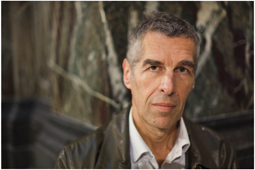 Paul Vandenbroeck has worked with the Collection Research Department since 1980 and he has held a part-time professorship with the Social Sciences Faculty of KU Leuven since 2003. He is an Art graduate from that same university and obtained his PhD in 1986. His main research interests are the oeuvre of Hieronymus Bosch, abstract North African textile art, contemporary art and topics on the interface between art and anthropology, including the relationship between folk and elite culture, the specificity of art in female religious communities and the relationship between therapeutic ritual and artistic creation. Paul Vandenbroeck is also the scientific editor of the museum Annual and he is preparing an exhibition entitled La vivante on the energetics of aesthetic creation, which will take place in 2013 at the Palais des Beaux-Arts in Lille (France).
Paul Vandenbroeck has worked with the Collection Research Department since 1980 and he has held a part-time professorship with the Social Sciences Faculty of KU Leuven since 2003. He is an Art graduate from that same university and obtained his PhD in 1986. His main research interests are the oeuvre of Hieronymus Bosch, abstract North African textile art, contemporary art and topics on the interface between art and anthropology, including the relationship between folk and elite culture, the specificity of art in female religious communities and the relationship between therapeutic ritual and artistic creation. Paul Vandenbroeck is also the scientific editor of the museum Annual and he is preparing an exhibition entitled La vivante on the energetics of aesthetic creation, which will take place in 2013 at the Palais des Beaux-Arts in Lille (France).
Bert Watteeuw, Rubenianum
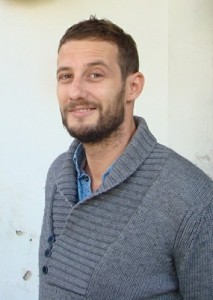 Bert Watteeuw is Curator of Research Collections at the Antwerp Rubenianum, where he manages the photographic, documentation and archival collections. Mr. Watteeuw wrote his master’s thesis at the University of Leuven on a friend and patron of Anthony Van Dyck, the Antwerp art collector Jacomo de Cachiopin (1591/92-1659), and he is currently completing a dissertation titled Capita Selecta: Interdisciplinary Perspectives on the Culture of Portraiture in Early Modern Flanders. His doctoral work has been funded by the Flemish Scientific Research Foundation (FWO), and he has published on portraiture and collecting in seventeenth-century Antwerp, on the relationship between art and fashion in early modern Flanders, and on the portrait as a literary motif.
Bert Watteeuw is Curator of Research Collections at the Antwerp Rubenianum, where he manages the photographic, documentation and archival collections. Mr. Watteeuw wrote his master’s thesis at the University of Leuven on a friend and patron of Anthony Van Dyck, the Antwerp art collector Jacomo de Cachiopin (1591/92-1659), and he is currently completing a dissertation titled Capita Selecta: Interdisciplinary Perspectives on the Culture of Portraiture in Early Modern Flanders. His doctoral work has been funded by the Flemish Scientific Research Foundation (FWO), and he has published on portraiture and collecting in seventeenth-century Antwerp, on the relationship between art and fashion in early modern Flanders, and on the portrait as a literary motif.
Mr. Watteeuw co-organized the international conference “Undressing Rubens” held in Antwerp in May of 2014, and he is presently preparing an essay and catalogue entries for an exhibition on Rubens’s family portraits to be held at the Rubenshuis Museum in 2015. Before coming to the Rubenianum in 2009, Mr. Watteeuw worked as a research assistant at the University of Leuven and taught Art History at the Saint Luke School for Science and Art (Ghent).




